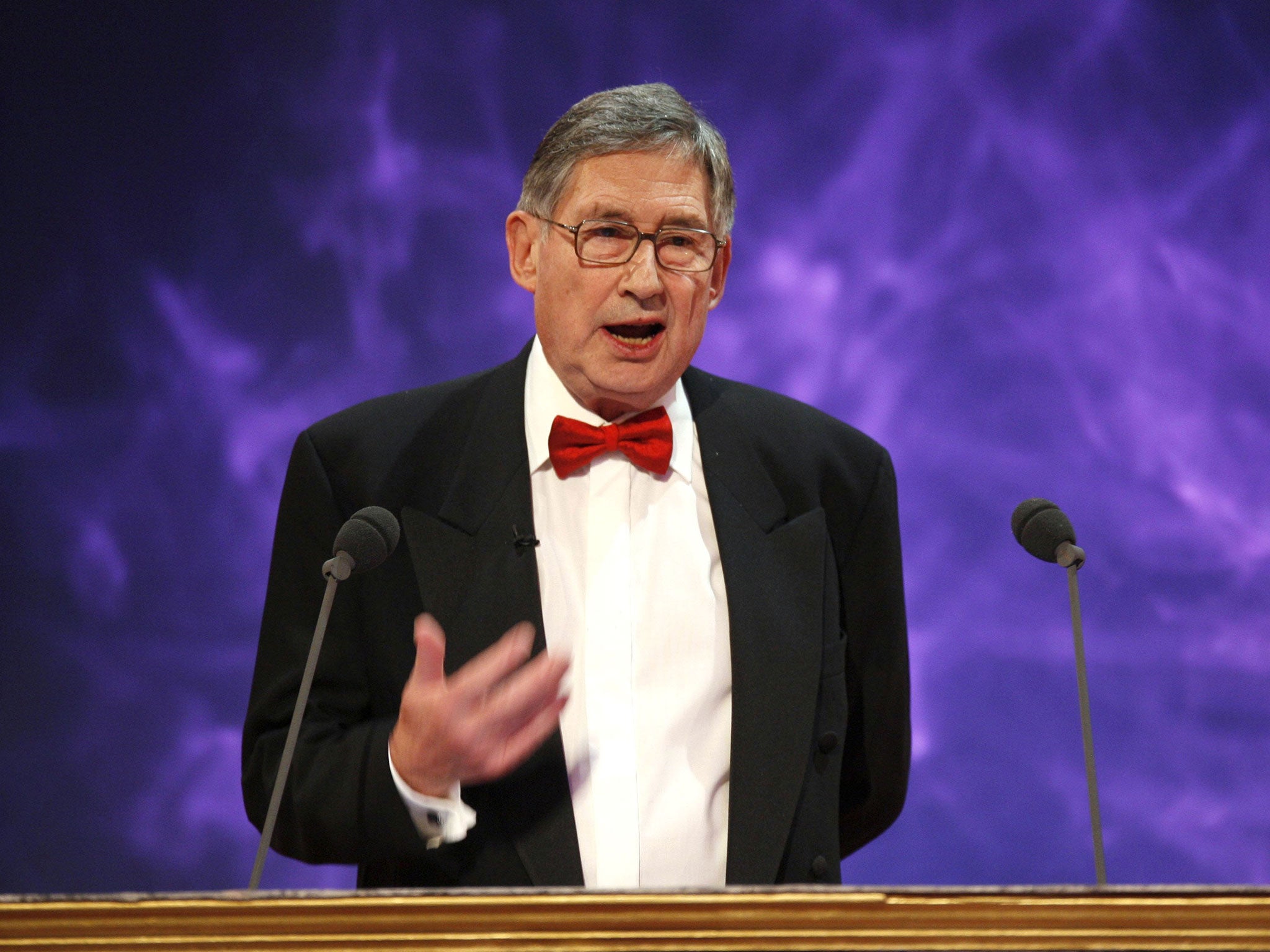With Reggie Perrin David Nobbs perfectly captured the “What Ifs?” we all wonder
Haven’t we all dreamed of faking suicide and going to our own funeral?


What was the meaning of Reginald Perrin? That was the question that often occurred to David Nobbs’ abiding comic creation himself – Reginald Iolanthe Perrin, senior sales executive at Sunshine Desserts, driven mad by the boredom of life in suburbia, by analysing figures for sales of crumbles, hallucinating at the mention of his mother-in-law and dumping a tanker-load of loganberry essence into a river to terrorise his boss (to whom he had finally promised “blood will flow”).
It was all about the “What Ifs?” we all wonder. What if you jacked your job in? What if, further, you faked suicide by leaving your clothes on a beach? What if you went to your own funeral (in disguise as a long-lost friend)?
What if you got bored of your new life on a sewage farm, or as a pig farmhand or an Italian businessman? What if you then wanted to return to a cosy life on the Poets’ Estate? To your fragrant wife, Elizabeth, your grown-up children and sponging ex-army brother-in-law? To your trips to the new safari parks in your Ford Cortina estate? To your gin and tonics after work? Your conversations with Ponsonby, your big fluffy cat? What if you found out your “widow” wanted to marry Henry Possett, whom you despise?
Perrin was a product, probably more accurately a symptom, of the 1970s. Funny or not, most of the comedy hits of the 1960s were firmly working class: from Steptoe and Son through Till Death us Do Part to On the Buses. Here were people who did not speak RP, own a car or go out for dinner.
The Perrins did. They inhabited a recognisably middle-class world, just as the players in The Good Life and Fawlty Towers did. These newer sitcoms reflected the way many millions of British families were growing prosperous, even as inflation, unemployment and declining public services eroded their spirits.
Then, as now, there was plenty of silly consumerism around. When, in a marketing meeting for the “Exotic Ices” project, Reggie sarcastically suggests a slogan – “I like to stroke my nipple with a raspberry and lychee ripple” – it spoke to a Britain absurdly entranced by such novelties as boil-in-the-bag pasta meals, Vesta dried curries and Alpen (a primitive muesli). His junior execs, depressingly, merely chorused “Great! Super!”
If you were such a fan of the TV series that you troubled yourself to read the novel it was based on – as I did – you’d have discovered other, darker themes such as incest and alcoholism. They were obviously not going to make it to prime-time BBC1, yet they made for a more complex tale. So many attempts to revive The Fall and Rise of Reginald Perrin fail, perhaps, because they are played for laughs; it would be fascinating to watch Perrin, and those around him, as equally tragic, bitter and pitiable, as Nobbs’ work originally drew them.
As with many a legendary sitcom, such as Dad’s Army and The Office, the Fall and Rise also benefited from an ensemble cast performance, apart from the brilliant Leonard Rossiter in the lead (fresh from his triumph as seedy landlord Rigsby in Rising Damp). There was John Barron’s CJ, the domineering chairman of Sunshine Desserts (“I didn’t get where I am today by kicking against the pricks”); and Geoffrey Palmer as Uncle Jimmy, his way of life threatened by a pantheon of 1970s demons (“Communists, Maoists, neo-Trotskyists, crypto-Trotskyists, union leaders, atheists, agnostics, long-haired weirdos, short-haired wierdos, vandals, hooligans, football supporters, namby-pamby probation officers, rapists, papists, papist rapists, Wedgwood Benn, keg bitter, punk rock, glue-sniffers, Play for Today, Clive Jenkins, Roy Jenkins...”). Plus, of course, the inept, permanently randy company doctor Doc Morrissey (John Horsley): “Had any dreams about naked sportswomen?”
The meaning of Perrin? That life, even in middle management, is not meaningless – and that the exciting parallel world you imagine would be just as frustrating as the familiar one you dream of escaping. So: Goodbye old Reggie, and goodbye, and thanks, David Nobbs.

Join our commenting forum
Join thought-provoking conversations, follow other Independent readers and see their replies